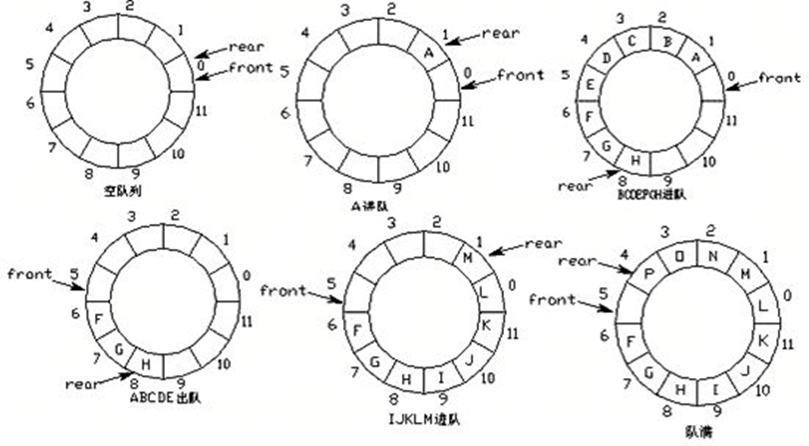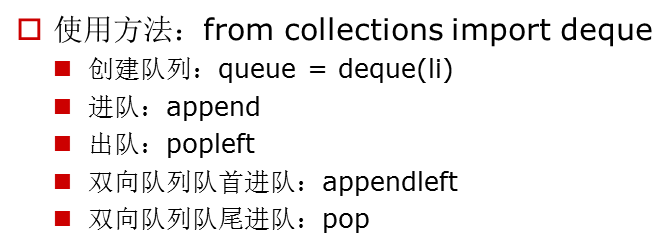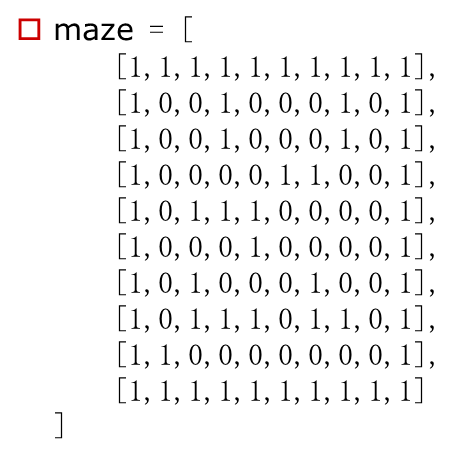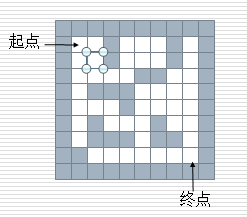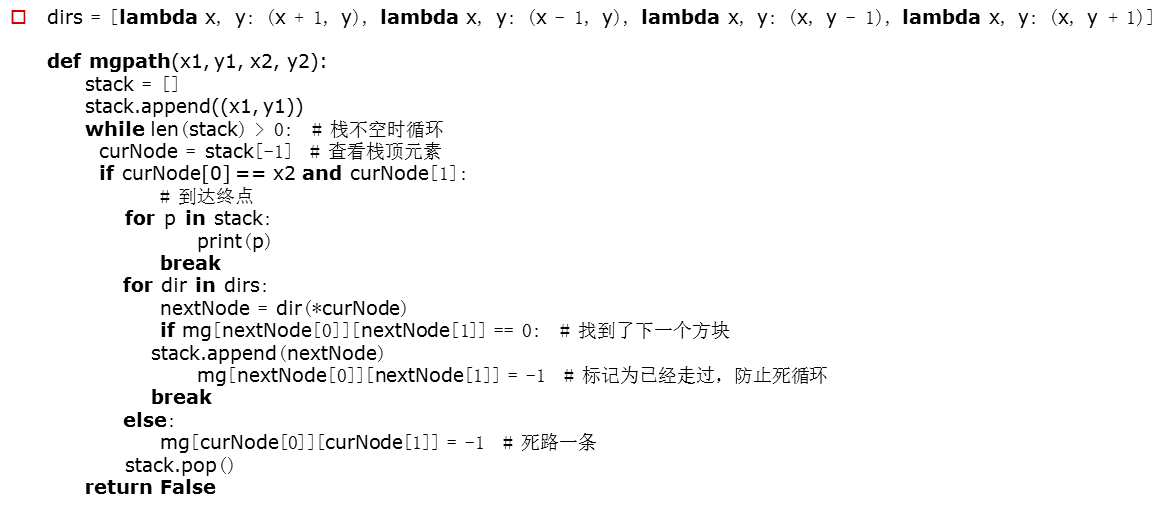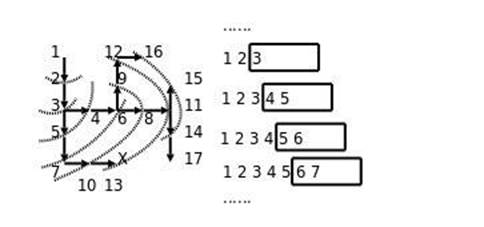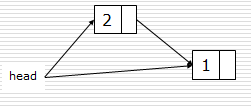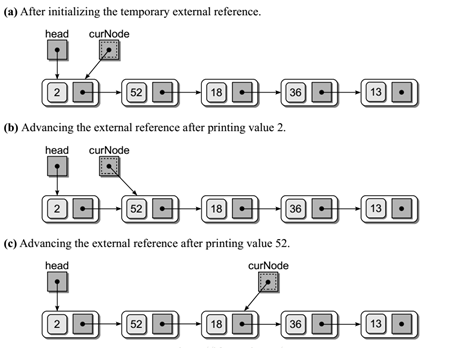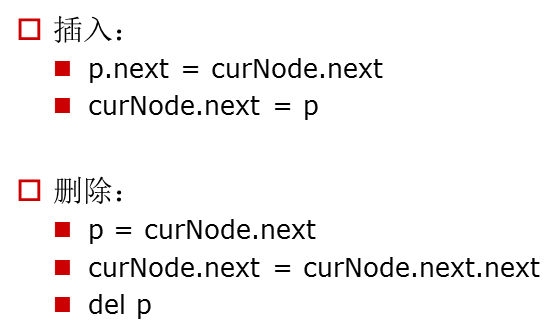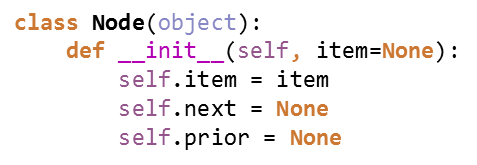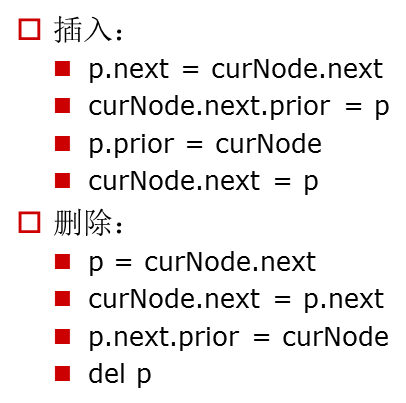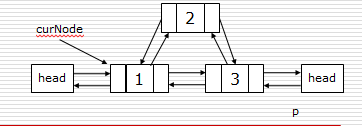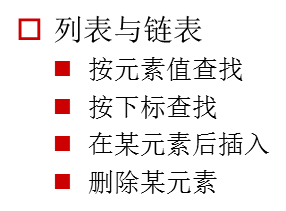Data Structure Foundation for Python
Posted by rachel2004 on Wed, 22 Apr 2020 19:27:53 +0200
1. Data Structure Basis
A. What is a data structure

b. Classification of data structures

c, List

import random
from timewrap import *
def list_to_buckets(li, iteration):
"""
:param li: list
:param iteration: Bucketing is the first iteration
:return:
"""
buckets = [[] for _ in range(10)]
for num in li:
digit = (num // (10 ** iteration)) % 10
buckets[digit].append(num)
return buckets
def buckets_to_list(buckets):
return [num for bucket in buckets for num in bucket]
# li = []
# for bucket in buckets:
# for num in bucket:
# li.append(num)
@cal_time
def radix_sort(li):
maxval = max(li) # 10000
it = 0
while 10 ** it <= maxval:
li = buckets_to_list(list_to_buckets(li, it))
it += 1
return li
li = [random.randint(0,1000) for _ in range(100000)]
radix_sort(li)
list
d, Stack

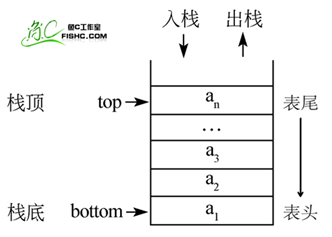
2. Python implementation of stack

a. Application of stack - topic of bracket matching



def brace_match(s):
stack = []
match = {')':'(', ']':'[', '}':'{'}
match2 = {'(':')', '[':']', '{':'}'}
for ch in s:
if ch in {'(', '[', '{'}:
stack.append(ch)
elif len(stack) == 0:
print("Lack%s" % match[ch])
return False
elif stack[-1] == match[ch]:
stack.pop()
else:
print("Bracket mismatch")
return False
if len(stack) > 0:
print("Lack%s" % (match2[stack[-1]]))
return False
return True
brace_match("[{()[]}{}{}")
Bracket Matching Implementation
b. Queues
c. Implementation of queues
d. Implementation principle of queue--ring queue
e. Implementation principle of queue--ring queue
3. The Application of Stack--Maze as Topic


from collections import deque
maze = [
[1,1,1,1,1,1,1,1,1,1],
[1,0,0,1,0,0,0,1,0,1],
[1,0,0,1,0,0,0,1,0,1],
[1,0,0,0,0,1,1,0,0,1],
[1,0,1,1,1,0,0,0,0,1],
[1,0,0,0,1,0,0,0,0,1],
[1,0,1,0,0,0,1,0,0,1],
[1,0,1,1,1,0,1,1,0,1],
[1,1,0,0,0,0,0,0,0,1],
[1,1,1,1,1,1,1,1,1,1]
]
dirs = [
lambda x,y:(x-1,y), #upper
lambda x,y:(x,y+1), #right
lambda x,y:(x+1,y), #lower
lambda x,y:(x,y-1), #Left
]
def solve_maze(x1, y1, x2, y2):
stack = []
stack.append((x1,y1))
maze[x1][y1] = 2
while len(stack) > 0: # Loop when stack is not empty
cur_node = stack[-1]
if cur_node == (x2,y2): #Arrive at End
for p in stack:
print(p)
return True
for dir in dirs:
next_node = dir(*cur_node)
if maze[next_node[0]][next_node[1]] == 0: #Find a direction to go
stack.append(next_node)
maze[next_node[0]][next_node[1]] = 2 # 2 Represents a point that has passed
break
else: #If one direction is not found
stack.pop()
else:
print("No way to go")
return False
def solve_maze2(x1,y1,x2,y2):
queue = deque()
path = [] # Record nodes after queue
queue.append((x1,y1,-1))
maze[x1][y1] = 2
while len(queue) > 0:
cur_node = queue.popleft()
path.append(cur_node)
if cur_node[0] == x2 and cur_node[1] == y2: #To End
real_path = []
x,y,i = path[-1]
real_path.append((x,y))
while i >= 0:
node = path[i]
real_path.append(node[0:2])
i = node[2]
real_path.reverse()
for p in real_path:
print(p)
return True
for dir in dirs:
next_node = dir(cur_node[0], cur_node[1])
if maze[next_node[0]][next_node[1]] == 0:
queue.append((next_node[0], next_node[1], len(path)-1))
maze[next_node[0]][next_node[1]] = 2 # Mark as past
else:
print("No way to go")
return False
solve_maze2(1,1,8,8)













